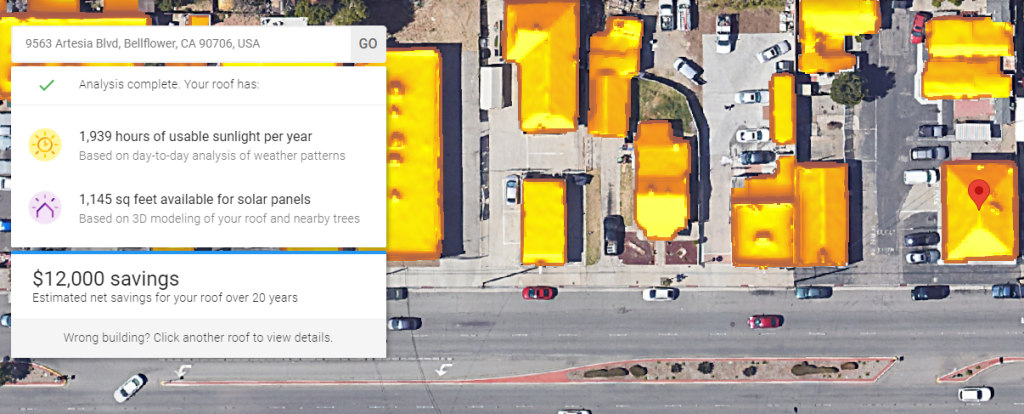The Google Project Sunroof is nothing new: the company launched it back in 2015, and it was quite a breakthrough at its time, digging deep into Google Earth's data to offer homeowners a personalized solar savings estimator.
With Google Project Sunroof, solar savings are determined based on the size and shape of the roof, areas of shading on the roof, local weather conditions, electricity prices in the area, costs of solar installation, and potential incentives available over time. In a nutshell:

The data will demonstrate the potential energy production of solar panels installed on the roofs of residential properties. Whether it's your home or your neighbour's, Google has meticulously mapped out this information for nearly every household worldwide. You can even explore the solar potential and impact across entire geographic areas by entering a city, state, or zip code, as Google provides solar data for parts of 50 states and Washington DC. This innovative approach serves to not only support the company's environmental sustainability initiatives but also showcase the platform's impressive technical capabilities.
The tool is still active, albeit not widely known by homeowners, although, according to Google data, search interest for" rooftop solar panel and power" increased by 60% in 2022.
In August last year, Google launched new sustainability APIs powered by the company's proprietary AI to provide developers with up-to-the-minute data on solar potential, air quality, and pollen levels.
While Project Rooftom was designed mainly to help single household owners, companies soon expressed interest in the tools, determining Google to launch a Solar API, which employs mapping and computational resources to provide in-depth rooftop solar potential data for over 320 million buildings across 40 countries, such as the U.S., France, and Japan.
The Solar API enables businesses to expedite solar installation, reduce the need for on-site visits, and remotely perform tasks that previously required in-person attendance, such as conducting measurements for solar panel arrays. This technology also enhances the accuracy of proposals by allowing installation quotes to be based on data that is as reliable as, if not superior to, in-person measurements. Furthermore, utilizing rooftop measurements, shading analysis, and solar production estimates facilitates the swift creation of customer proposals, ensuring efficient delivery.
The Solar API could be employed by solar installers such as SunRun and Tesla and energy and solar design companies like Aurora Solar. Google also envisions opportunities with customers in real estate companies like Zillow and Redfin, hospitality companies like Marriott Bonvoy, and utilities like PG&E.
Google projects that the Solar API could yield a revenue ranging from $90 to $100 million within the first year post-launch.
Project Sunroof and Solar API are not the sole sustainability tools in Google's arsenal. Two more round up the roster, including the Air Quality API and Pollen API, all drawing data from Google tools and technologies like Google Earth, Earth Engine, and Environmental Insights Explorer.
As the prevalence of seasonal allergies continues to escalate annually, the Pollen API presents updated data on the most prevalent allergens in 65 countries. This is achieved through a combination of machine learning and analysis of wind patterns. Similarly, the Air Quality API delivers comprehensive insights into local air quality by harnessing data from diverse sources such as government monitoring stations, satellites, live traffic, and more, and can effectively pinpoint areas affected by wildfires.
While these services are aimed at businesses and paying clientele, Google Maps users in specific regions across the globe can also monitor air pollution levels and areas impacted by wildfires.
With insights into how the planet is changing, we can build sustainability tools and support other organizations to do the same. And we can work toward our ambition to help individuals, cities, and partners collectively reduce 1 gigaton of their carbon equivalent emissions annually by 2030.
Yael Maguire, Vice President and General Manager, Geo Sustainability, Google
With the introduction of these sustainability APIs, businesses will have access to extensive and current environmental information to facilitate the development of sustainable products and assist individuals in adjusting to the repercussions of climate change. Google is committed to the ongoing creation of tools that organize environmental data and render it valuable for companies, municipalities, and partners to address these challenges collectively.